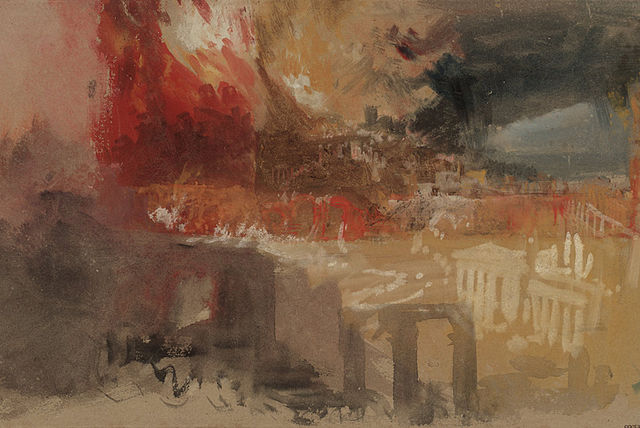
Please Follow us on Gab, Minds, Telegram, Rumble, Gab TV, GETTR, Truth Social
It was during a pleasant Friday afternoon lunch, with our former neighbors, that the topic of religion came up as it relates to the priority of observance over relationships. The conversation began as we shared some stories, familiar to all of us, over how the rigidity of rules, laws and tradition seem to be more important, to “the faithful,” than the preservation of precious family relationships and friendships. The more we explored it, the more antithetical it seemed to the advancement of a proper order of priorities and what should really matter in life.
Sadly, as the sage advice goes, “Never talk about religion or politics,” because you’re likely to offend, anger or alienate those around you, and while that’s always been true, that warning has bombastically magnified itself to the point where, not only are so many topics forbidden these days, but, also, holding certain opinions or values which are seen as a threat, has justified everything from ostracism to violence in order to eradicate an undesired position.
This is the place where we have arrived as a species, and it didn’t take very long to regress to the Dark Ages when burning someone at the stake, for beliefs they held, was an accepted form of censorship.
This week’s U.S. Supreme Court decisions concerning gun laws and abortion rights likely have some wishing that we they could go back to a time when the ruling powers haunted and pursued fellow countrymen who refused to support the prevailing religion, viewpoint or politics of the intolerant leaders who were incapable of making room for other perspectives. Yet, as insidious as burning at the stake was, it, clearly, never became an effective tool in silencing opposition and dissent, since those things still, very much, exist today.
In fact, if history has taught us anything, it’s that we always had differences of opinion, diverse ways of looking at the same subject and possessed feelings, emotions and passions which, when crossed, could result in igniting the worst tendencies within us. And that is why division is a powder keg which, when detonated, can only seriously injure all of us as a whole.
The best, most peaceful times in history were the periods when tolerance, freedom and mutual cooperation existed – allowing for diversity of thought, religion, opinion and liberties, all of which threatened no one, because everyone felt secure enough in their own held positions that excessive power was not needed in order to keep others in line.
Such a period was called, Pax Romana (Latin for “Roman Peace”), seen as a “golden age,” which encompassed two centuries, following the time of Mark Antony and Cleopatra who were defeated by Octavian (Augustus). In his belief that war was a bad thing, Augustus had a huge hurdle to overcome in trying to convince the war-mongering Romans that they should give up their pursuit of killing others – not only through means of never-ending battles but, also, by beating down their opponents until they could resist no more. He, instead, championed the goal of prosperity and a united people.
Similarly, Pax Americana (American Peace) became a concept which occurred just after the Second World War ended. During these years of relative peace, a growing economy and increasing tolerance made it possible for a more unified population which eventually found its way to greater civil rights and attainment of the American Dream which soon became the envy and aspiration of millions throughout the world who longed for the same way of life.
But just as the classic Joni Mitchell song goes, “Don’t it always seem to go that you don’t know what you’ve got till it’s gone,” we, again, stand at a precipice of losing all we’ve worked for over the course of almost 80 years.
I am old enough to remember a great many new immigrants to America whose arms had numbers tattooed on them all because their race and religion was the wrong one. They were the lucky ones who had not been eradicated by those who believed they had no right to exist.
With the advent of the 1960s and 70s, it became more and more apparent that diversity of thought and opinion was an ever-growing commodity, giving way to endless debate. And even if one side wasn’t able to convince the other, the discourse, itself accomplished a way for both sides to be heard and for good arguments to be expressed and considered.
Those days are gone as unwilling and inflexible individuals prefer threat, intimidation and even violence as the weapon of choice in order to silence those with whom they disagree. While it’s not a full-scale “burning at the stake,” it’s not too many steps behind.
To quote a few important words on this subject, it was on this very month of June, just 164 years ago, that President Abraham Lincoln proclaimed, in one of his speeches, that, “A House Divided Cannot Stand.” He well knew how slavery (the political issue of his day) was tearing the country apart and eroding all that had the potential to bring greatness. Of course, this saying originated in the New Testament Scriptures – “And if a kingdom be divided against itself, that kingdom cannot stand. And if a house be divided against itself, that house cannot stand,” (Mark 3:24-26)
So here we are, full circle, back to both religion and politics which, recognizes that, although able to enflame real hatred of opposing individuals, we must be ever diligent to not allow a wedge of destructive division to eat away at the very core of our ability to accept, embrace and welcome one another into the family of humanity – despite our physical, political and religious differences which should be viewed as strengths which add rather than subtract.
Because if we continue to look at each other as a liability to our own world view, it won’t be long before burning at the stake is resurrected in order to cleanse unwanted thoughts and beliefs from our midst in the same way that we would seek to eradicate any existential threat which would irreparably harm us.
The problem, here, is that your neighbor is not an existential threat simply because they may think differently than you.
To see the real existential threat, may require looking in the mirror in order to see your own image of Caligula staring back at you. His cruelty and perversion of thought drove him to mental insanity from which he never recovered. We must do all we can to avoid that same horrible fate.
The path forward is to remember, “United We Stand, Divided We Fall!”
























